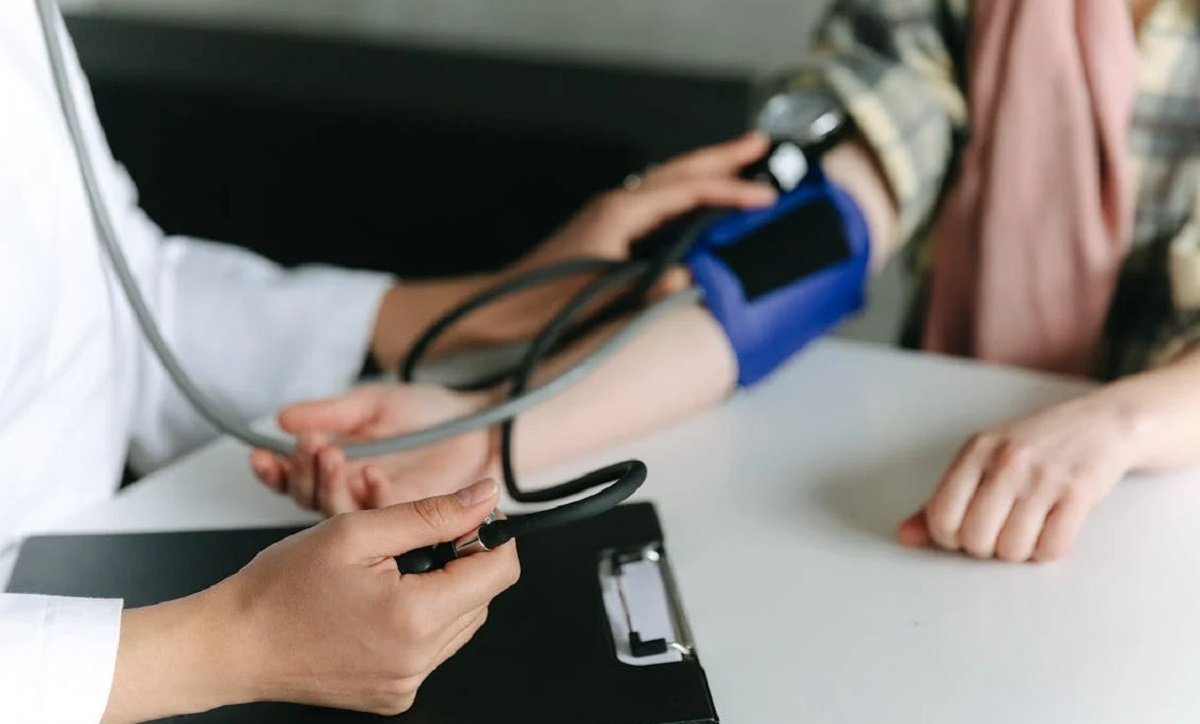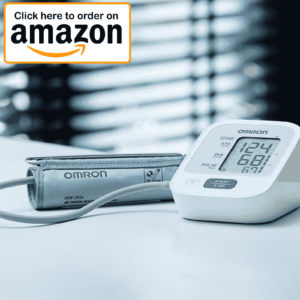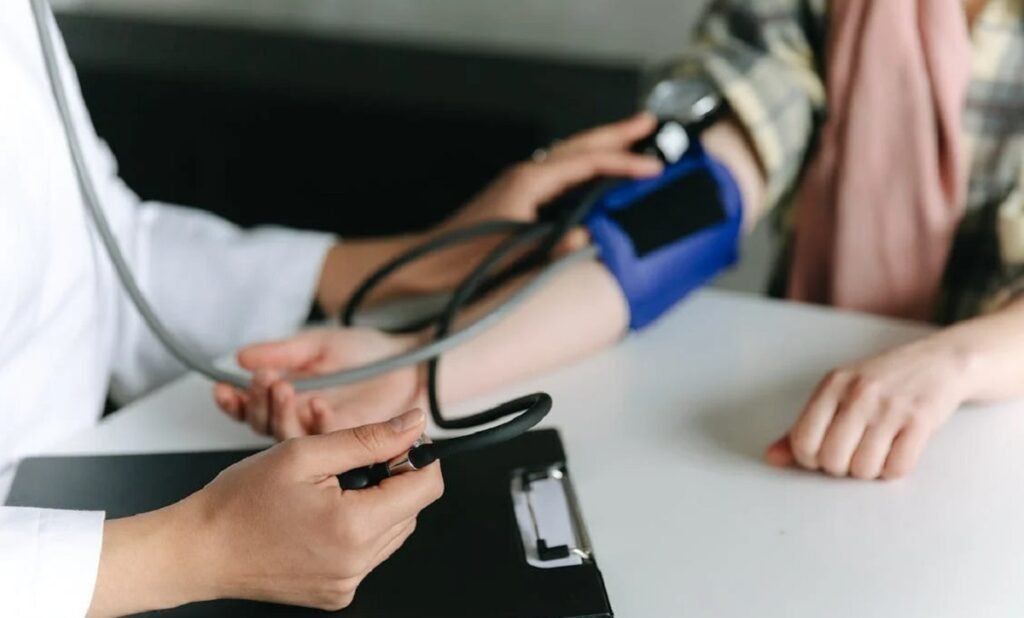Known as the “silent killer,” hypertension, or high blood pressure, stealthily claims millions of lives every year. High blood pressure symptoms are to discuss today. Significant risks for heart disease, stroke, and other major health issues are associated with this syndrome. Even while high blood pressure is common, many people are unaware of it until they have severe symptoms or consequences.

It is essential to recognize the warning signs and symptoms of high blood pressure in order to detect it early and treat it effectively. We examine the several signs and symptoms of high blood pressure in this extensive essay, providing insight into their causes, effects, and ways to avoid them.
Defining High Blood Pressure:
Hypertension, the medical term for high blood pressure, is a chronic illness marked by higher readings that consistently exceed normal ranges. It happens when the blood pressure exerted on the artery walls is continuously too high, placing stress on the cardiovascular system. Known as the “silent killer,” hypertension, or high blood pressure, stealthily claims millions of lives every year. High blood pressure symptoms are very high.
The Silent Nature of High Blood Pressure:
The stealthy growth of high blood pressure is one of its most pernicious features. In contrast to numerous other medical illnesses, hypertension frequently exhibits no symptoms during its initial stages, therefore being dubbed the “silent killer.” It’s possible for a problem to go undiagnosed for years until it causes serious health issues.
Understanding Blood Pressure Readings:
Systolic pressure, which is the upper number, and diastolic pressure, which is the lower number, are the two numbers used to assess blood pressure. Generally speaking, a normal blood pressure level is less than 120/80 mmHg. Blood pressure readings outside of this range are indicative of high blood pressure, which is divided into many phases according to severity.
Blood Pressure Monitor- BUY NOW
 ORDER NOW
ORDER NOW
High Blood Pressure Symptoms
Even while high blood pressure may not cause any symptoms for a long time, there are some indications and symptoms that can point to the condition’s presence, particularly when it worsens or causes consequences. It is essential to identify these signs in order to take prompt action and avoid negative consequences. Known as the “silent killer,” hypertension, or high blood pressure, stealthily claims millions of lives every year. High blood pressure symptoms are various in numbers but little different by person to person.
1. Headaches and Dizziness:
Oftentimes, headaches, especially in the morning, and lightheadedness are signs of elevated blood pressure. Headaches, lightheadedness, and dizziness might arise from increased intracranial pressure caused by the high blood vessel pressure.
2. Vision Problems:
High blood pressure can occasionally cause blurred vision or alterations in vision, which could indicate damage to the blood vessels in the eyes. If treatment for hypertension-related eye conditions is not received, vision impairment may result from retinopathy, optic neuropathy, or hypertensive retinopathy.
3. Chest Pain and Shortness of Breath:
People with high blood pressure may have chest tightness, pain, or discomfort, which frequently resembles angina, especially after physical activity or under stressful situations. These sensations may also be accompanied by dyspnea, particularly during physical exertion, which suggests a potential cardiovascular strain.
4. Irregular Heartbeat (Arrhythmia):
Elevated blood pressure can cause arrhythmias, or abnormal heartbeats, by interfering with the heart’s natural rhythm. Palpitations, missed heartbeats, or a fluttering sensation in the chest might happen and require a medical assessment to determine the state of the heart and treat any underlying hypertension.
5. Fatigue and Weakness:
Weakness and chronic fatigue are general symptoms that can be linked to a number of medical disorders, including high blood pressure. Chronic fatigue, sluggishness, or poor energy could be signs of hypertension-related inadequate blood flow and oxygen delivery to tissues.
6. Flushing or Facial Redness:
People with high blood pressure can experience flushing or facial redness, especially in the cheeks or nose. This symptom, which may be indicative of underlying vascular problems, may be brought on by increased blood flow and dilatation of blood vessels close to the skin’s surface.
7. Difficulty Sleeping (Insomnia):
High blood pressure and insomnia can be associated, either directly as a symptom of each other or indirectly through related conditions like worry, stress, or sleep apnea, which frequently coexist with hypertension. For blood pressure control and general health, sleep problems must be addressed.
8. Nausea or Vomiting:
Occasionally, nausea and vomiting can be brought on by high blood pressure, especially if it results in organ damage like renal failure or hypertensive crisis. These symptoms need for prompt medical attention since they may appear with other severe hypertension symptoms.
9. Nosebleeds (Epistaxis):
Nosebleeds, or epistaxis, are frequently linked to high blood pressure, however this is not always the case. However, extremely high blood pressure, particularly in those with preexisting illnesses like hypertension, can exacerbate nosebleeds by applying undue pressure to the delicate blood vessels in the nasal passages.
10. Cognitive Changes and Confusion:
Persistent hypertension can cause minor alterations in memory, focus, or mental clarity, as well as impede cognitive performance. Confusion, disorientation, or cognitive impairment can also be signs of severe hypertension or hypertensive crises, suggesting possible organ damage or neurological involvement.
Conclusion
High blood pressure is a common health issue that could have detrimental effects on general health and cardiovascular health. Although hypertension is frequently asymptomatic in the early stages, if it worsens or causes complications, it can present with a variety of symptoms. It is critical to identify these symptoms in order to improve long-term health outcomes and minimize the risk of negative consequences from high blood pressure by early detection, intervention, and effective treatment. People can protect their health and quality of life by proactively addressing the silent threat of high blood pressure through lifestyle adjustments, regular monitoring, and awareness-raising.
